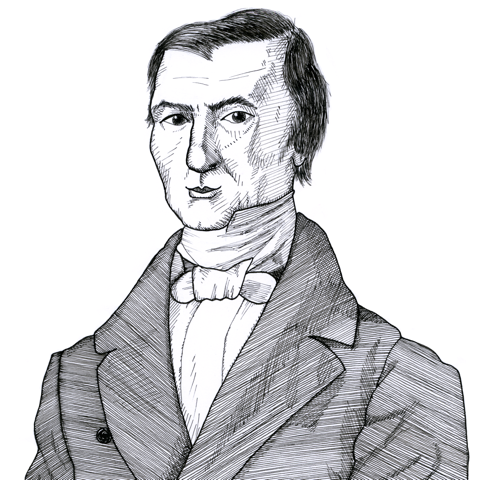
Bastiat on disbanding the standing army and replacing it with local militias (1847)
The French economist and free trade activist Frédéric Bastiat (1801-1850) dreams of slashing the size of the French government’s budget by abolishing the standing army and replacing it with local militias:
War & Peace
The Utopian politician: “[Cutting tariffs] have given me something even more precious.”
His adviser: “And what is that, if you please?”
The Utopian politician: “International relationships based on justice, and the likelihood of peace, which is almost a certainty. I would disband the army.”
Adviser: “The entire army?”
The Utopian politician: “Except for some specialized divisions, which would recruit voluntarily just like any other profession. And as you can see, conscription would be abolished.” …
His adviser: “In short, you are disarming the country based on a Utopian faith.”
The Utopian politician: “I said that I was disbanding the army and not that I was disarming the country. On the contrary, I intend to give it an invincible force.”
His adviser: “How are you going to sort out this heap of contradictions?”
The Utopian politician: “I will call on the services of all citizens.‘ …
The Utopian becomes excited: “Thank heavens; my budget has been reduced by 200 million! …"